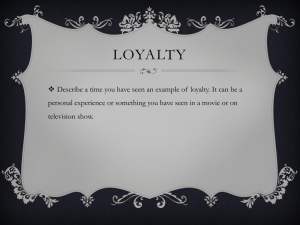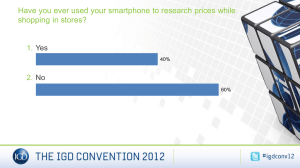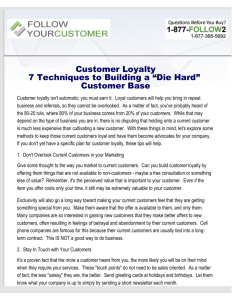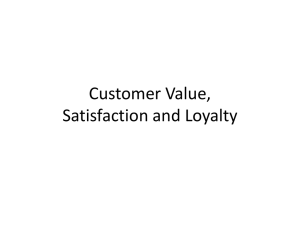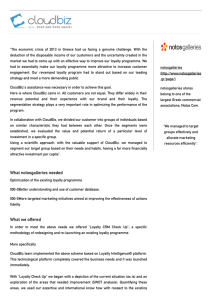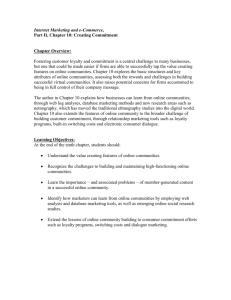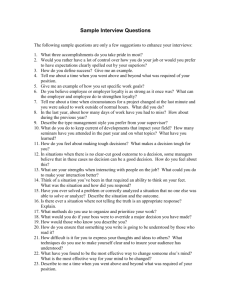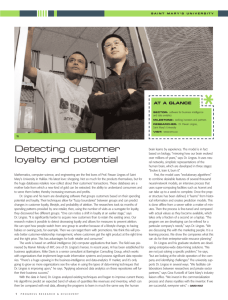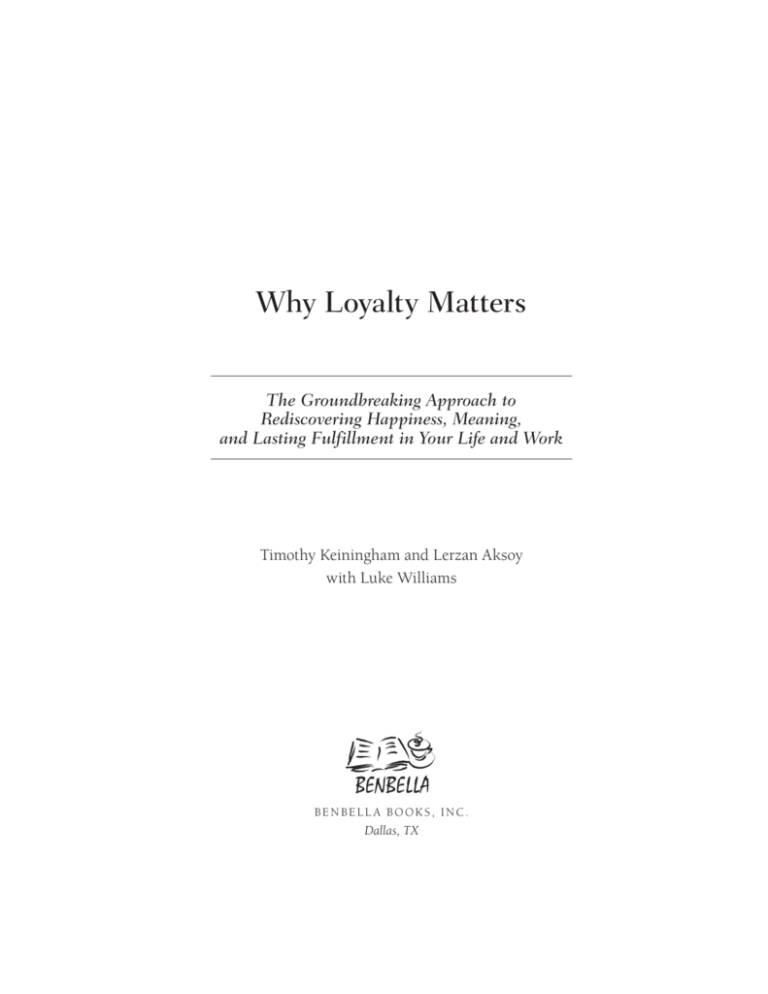
Why Loyalty Matters
The Groundbreaking Approach to
Rediscovering Happiness, Meaning,
and Lasting Fulfillment in Your Life and Work
Timothy Keiningham and Lerzan Aksoy
with Luke Williams
BENBEL L A BOOK S, INC.
Dallas, TX
Copyright © 2009 by Timothy Keiningham and Lerzan Aksoy
All rights reserved. No part of this book may be used or reproduced in
any manner whatsoever without written permission except in the case
of brief quotations embodied in critical articles or reviews.
BenBella Books, Inc.
6440 N. Central Expressway, Suite 503
Dallas, TX 75206
www.benbellabooks.com
Send feedback to feedback@benbellabooks.com
Printed in the United States of America
10 9 8 7 6 5 4 3 2 1
Library of Congress Cataloging-in-Publication Data is available for this
title.
ISBN 978-1933771-72-4
Proofreading by Stacia Seaman and Erica Lovett
Cover design by Todd Michael Bushman
Text design and composition by PerfecType, Nashville, TN
Printed by Bang Printing
Distributed by Perseus Distribution
perseusdistribution.com
To place orders through Perseus Distribution:
Tel: 800-343-4499
Fax: 800-351-5073
E-mail: orderentry@perseusbooks.com
Significant discounts for bulk sales are available. Please contact Glenn
Yeffeth at glenn@benbellabooks.com or (214) 750-3628.
To those who truly believe that we all matter, and who seek
to make the world a better place by acting like we do.
999
Lack of loyalty is one of the major causes of failure
in every walk of life.
—Napoleon Hill (1883–1970), excerpted from
Think and Grow Rich (originally published in 1937—
arguably the bestselling success book of all time)
999
Hana Keiningham, Sage Keiningham, Alexander Keiningham, Christopher Keiningham, and Deren Kurtay . . . we
do this in the hope that you will grow up in a world surrounded by loving, loyal friends.
Contents
Preface
xv
Chapter 1: The Why of Loyalty
Chapter 2: Know Yourself
Chapter 3: Building Loyal Relationships
Chapter 4: The Economics of Loyalty
Chapter 5: Toxic Loyalty
Chapter 6: Faith and Loyalty
Chapter 7: Teaching Loyalty
Chapter 8: A Loyal Society
Chapter 9: Enlightened Loyalty
1
27
49
61
105
147
163
183
203
Appendix
References
Acknowledgments
Index
About the Authors
221
227
229
235
245
xiii
Praise for Why Loyalty Matters
“This is a supremely practical book with a profoundly moral
message: that the quality of our lives, the productivity of our
organizations, and the depth of our relationships are inextricably related. This book should not be used only as a guide
for leaders, but as a guide for life.”
—Joseph Grenny, New York Times Bestselling Co-Author of
Influencer: The Power to Change Anything and Crucial
Conversations: Tools for Talking When Stakes are High
“Why Loyalty Matters is a wonderful, timely book. Reading
it can improve your relationships, your work, and actually
make you happier.”
—Tal-Ben Shahar, New York Times
Bestselling Author of Happier
“Why Loyalty Matters is fun to read, practical to do, and
invaluable to your success.”
—Keith Ferrazzi, New York Times Bestselling
Author of Never Eat Alone
“The idea of loyalty is much more than a platitude, it is the
foundation by which people develop successful businesses
and happy lives. Anyone who seeks to cultivate loyal customers, employees, and loved ones should not only read this
book, but mark it up as a reference guide.”
—Adrian Gostick and Chester Elton, New York Times
Bestselling Authors of The Carrot Principle
“Keiningham and Aksoy have written the definitive book on
the what, how, and why of loyalty.”
—Sonja Lyubomirsky, Bestselling Author of
The How of Happiness, and Professor of Psychology
at the University of California, Riverside
“In good times loyalty is important; in challenging times it’s
essential. Why Loyalty Matters is the best book on loyalty
ever written.”
—Michael Watkins, Bestselling Author of The First 90 Days:
Critical Success Strategies for New Leaders at All Levels
and Co-founder of Genesis Advisers
“Loyalty matters! It’s so direct and fundamental that we lose
sight of just how important it really is. Keiningham and
Aksoy brilliantly illustrate that the key to lasting success
and happiness—in all parts of life, not just work—hinges
on our human ability to be loyal. The message of Why Loyalty Matters is timeless—and timely.”
—Stewart Friedman, Bestselling Author of Total Leadership:
Be a Better Leader, Have a Richer Life and Professor of
Management at the University of Pennsylvania’s
Wharton School
“We are a species for whom meaningful connections to others are essential for our health and happiness. This wonderful book makes the important point that for social
connections to be meaningful and to make us happy and
healthy, they cannot be fleeting, and that loyalty is a key
ingredient of a life lived well.”
—John Cacioppo, Bestselling Co-Author of Loneliness,
Distinguished Professor of Psychology at the University
of Chicago, and Past President of the Association
for Psychological Science
“Loyalty is a key ingredient in creating a high performance
culture. Those leaders, athletes, or coaches who can leverage
the power of loyalty have a distinct home field advantage.
Why Loyalty Matters is the first playbook of its kind.”
—David Kasiarz, Senior Vice President,
Global Compensation and Benefits, American Express
“As the CEO of 2,400 employees ranging from veterans to
boomers, Xers to Nexters, it is challenging to understand
motivation and engagement. Why Loyalty Matters is a brilliant and thought-provoking book that not only identifies
issues, but also provides real-life answers. In a complicated
world, it is an excellent resource to utilize with struggling
individuals and teams, and I was challenged to consider my
own motivations and behaviors that influence my personal
happiness and satisfaction.”
—Britt Berrett, President & CEO, Medical City &
Medical City Children’s Hospital, Dallas, TX
“What makes the final difference in personal and professional relationships? Loyalty is the difference maker! Tim
and Lerzan remind us that personal qualities always transcend the technical!”
—Bob Beaudine, Bestselling Author of The Power of WHO,
and President & CEO of Eastman & Beaudine
“Why Loyalty Matters powerfully demonstrates a fundamental truth that we forget all too often—that it is indeed good
business to be good to one another.”
—Rita G. McGrath, Professor of Management at
Columbia University, Consultant, and Bestselling
Co-Author of Discovery-Driven Growth
“Why Loyalty Matters provides exceptional insight into the
nuances of loyalty, and how to achieve the right kind. This
book will be of great interest to all who seek to enhance
their well-being through loyalty.”
—Ajay K. Kohli, Professor of Marketing
at the Georgia Institute of Technology,
and Editor of the Journal of Marketing
“It is a paradox that with increased quality of life, fewer people seem to be truly happy. Contrary to popular thinking, no
man is an island! In Why Loyalty Matters, the authors make
a brilliant case of linking loyalty to happiness. To improve
our individual and collective happiness we need to rethink
our caring for other people. The reward is the mutual joy of
being included into something big and enriching.”
—Tor W. Andreassen, Professor and Chair
of the Department of Marketing,
BI Norwegian School of Management
“This is a fun and fascinating book that is almost impossible
to put down, and it provides solutions to a critical problem.
If you want to be a better friend, spouse, manager, employee,
customer, citizen of the world—or if you just want to be
happier—please read this book!”
—Bruce Cooil, Professor of Management, Owen
Graduate School of Management, Vanderbilt University
“At a time when some corporate executives raked in millions
of dollars while laying off many of their most loyal, longterm employees—with some pundits proclaiming that’s just
fine—it’s time for a book that spells out exactly ‘Why Loyalty Matters.’ I hope that every CEO in the world reads this
book.”
—Roland Rust, Distinguished Professor of Marketing,
University of Maryland, and Bestselling Author of
Customer Equity Management
“This book generates insightful information about all types
of loyalty and provides compelling arguments for why loyalty is important in all walks of life. A lot of analytical thinking has gone into the writing of this book. A must-read for
everyone.”
—V. Kumar, Distinguished Professor of Marketing, Georgia
State University, and Bestselling Author
of Managing Customers for Profit
“Why Loyalty Matters offers a fascinating analysis of the many
facets of loyalty. Anyone interested in enhancing his or her
quality of life (and who isn’t?) will enjoy reading and benefit
immensely from this well-researched, wonderfully crafted,
and engaging book.”
—A. “Parsu” Parasuraman, Vice Dean of Faculty and Professor of Marketing, University of Miami, and Editor of the Journal
of Service Research
“This very week, an interviewer for a trade publication
asked me, ‘Why should our readers care about loyalty?’
Tim Keiningham and Lerzan Aksoy deeply and thoroughly
answer this oft-asked question in surprising, memorable,
and provocative ways. Why Loyalty Matters is one of those
rare books that teaches profound business, life, and history
lessons simultaneously. Read it and be inspired.”
—Jill Griffin, Bestselling Author of Taming the
Search-and-Switch Customer and Customer Loyalty:
How To Earn It, How To Keep It
“Why Loyalty Matters looks at loyalty in bold, new ways. By
taking both a broad and deep view of loyalty—and how it
affects our life, our work, and our societies, Keiningham and
Aksoy have provided a promising roadmap for our future.
Timely, useful, and fun to read!”
—Katherine Lemon, Professor of Marketing,
Boston College, and Editor of the Journal of
Service Research (beginning June 1, 2009)
Preface
This book is about a very simple idea. Why Loyalty Matters
makes the case that loyalty is critical to our happiness as
individuals and our health as a society, that loyalty improves
the performance of our businesses and our satisfaction as
employees. We argue that at some point our culture decided
that loyalty was an old-fashioned and unimportant virtue,
and that this decision has made us weaker as a society and
less satisfied as individuals.
But this isn’t a book of philosophy. Our goal is to help
every reader gain significant personal insight into the role
loyalty plays in his and her life. In order to do this, we have
developed LoyaltyAdvisor™, a powerful tool that allows you
to assess your relationship style and examine your loyalties
across multiple areas that have been proven to correlate to
happiness. Even more, LoyaltyAdvisor allows your friends
and associates to assess your loyalty across multiple dimensions, providing you with objective, confidential, third-party
xv
W H Y L OY A LT Y M AT T E R S
feedback. On the reverse side of the dust jacket of this book
you’ll find a one-time-use code that you can use to gain
access to LoyaltyAdvisor. We believe that you will find this
tool very helpful.
We’ve been thinking and writing about loyalty for some
time now. We co-wrote the award-winning book Loyalty
Myths, which focused on loyalty in relationship to business
performance. Why Loyalty Matters takes a broader perspective, examining the role loyalty plays in our lives as businesspeople and employees, husbands and wives, friends
and citizens.
We recognize that, like any virtue, loyalty can go too
far and become toxic, and we discuss how to recognize and
avoid these situations. But overall, we believe that we are a
society that undervalues loyalty, and we examine the issues
of loyalty and faith, how loyalty can be taught, and how it
can become an increasingly important part of our society.
We’re hopeful that this book can be part of a growing movement that recognizes the importance of the fundamental
values of life, loyalty chief among them.
We hope you can be part of this movement as well!
xvi
Chapter 1
The Why of Loyalty
A happiness that is sought for
ourselves alone can never be found;
for a happiness that is diminished
by being shared is not big enough to
make us happy.
—Thomas Merton (1915–1968),
Catholic monk and author,
No Man Is an Island
1
W
e need one another. If history has shown us
anything, it is that our ability to work together
has ensured our continued existence. But our
connection to one another is about much more than our
physical survival. We need one another to be whole: physically, emotionally, and spiritually. And research consistently
shows that we need one another to be happy.
Unfortunately, for too many of us, connections to family,
friends, lovers, and communities have stretched into thin,
easily snapped threads. Pulled in every direction, we find no
time in our fast-paced, hectic schedules to devote to the people and causes that fill us up emotionally and spiritually.
At some point, virtually all of us have felt this way.
While we may shudder in the moment, we ultimately shake
it off, taking solace in the fact that we are fundamentally
okay, right here and right now. We’re not suffering oppressive tyranny right now. Society isn’t collapsing right now,
at this very moment. Our governments are slow to act and
sometimes fail to do right by us, but we’re not dying because
of it. We aren’t dying from relationships that seem to exist
only as tests of will, as emotional roller coasters. There are
3
W H Y L OY A LT Y M AT T E R S
things wrong with the world, with our country, with our
work, and with ourselves, but we’re okay. Right here and
right now, we’re okay.
No, we’re not okay. Sure, we aren’t facing imminent
death. But for most of us, life is far from perfect. Almost
none of us—less than 5 percent—strongly agree with this
statement: “I am completely satisfied with my life.” In fact,
even if you combine this 5 percent with the next highest
rating, that number is still only around 15 percent. That’s
fewer than two out of ten of us!
This finding isn’t so surprising when you think about
how we divide up our days. Research shows the majority of
us believe that we aren’t allocating the right amount of time
between family, friends, and work.
I feel that the amount of time and effort I give to my
family/friends/company is about right.
Source: Ipsos Loyalty
4
T H E W H Y OF L OY A LT Y
Solving this problem isn’t as simple as time management. It is more deeply rooted. As a society, we are losing the
sense of one of the most important principles in our lives,
all because we’ve simply fallen out of practice. The principle
that binds us together is loyalty.
Without us noticing it, the world has shifted from a society of many long-term loyalties to a society of transactional
relationships and ephemeral contacts. This is a natural byproduct of the increasingly dynamic economic environment
in which we live. We have become more flexible and more
mobile workers, which has made businesses more efficient.
And this has given us greater opportunities to succeed,
making us wealthier.
But it has also made us less loyal. Because successful
organizations are built on relationships, this actually isn’t
good for business. And it isn’t good for us as individuals
either—it definitely has not made us happier!
Times Have Changed
Historically, loyalty wasn’t optional. Ostracism represented
the ultimate disgrace. Why would early settlers in the American colonies tolerate public humiliation, such as being put
on display in medieval stocks? Why not simply leave the
group? Because leaving was even more unpalatable. It meant
no support, emotionally or physically, from the community.
And no support most likely meant an early death.
5
W H Y L OY A LT Y M AT T E R S
But times have changed dramatically. Leaving the group
seldom risks one’s survival today. The prosperity of the modern era has also provided us with greater opportunities.
These opportunities bring with them the greater likelihood
that we will shift our loyalties in search of greener pastures.
As a result, leaving the group has become the increasingly
popular option when we object to the actions or positions in
a community.
Columbia University law professor George P. Fletcher
observes, “In the marketplace, where all that is at stake is
the performance of the product or the quality of the service,
the best thing to do is leave—that is, to find the competitor who better supplies the needed good. The exemplar of
the marketplace has conquered neighboring arenas. Today
we think about relatives, employers, religious groups, and
nations the way we think about companies that supply us
with other products and services. If we don’t like what we
are getting, we consider the competition.”
Without question, “voting with your feet” is the ultimate punishment that we as individuals can exact on a
community. It actually threatens the viability of any society.
If enough people leave, the group is forced to change, disintegrate, or in the worst of cases, hold people hostage. This
last was the case in East Germany; the loss of so many of its
citizens caused the government to erect the Berlin Wall—
not to keep enemies out, but to force its citizens to stay.
6
T H E W H Y OF L OY A LT Y
While we often think of “leaving” in economic “customer–company” or political “government–citizen” relationships, the possibility of leaving applies to some degree
to our relationships with everyone. Weak friendships, dysfunctional families, bad marriages, intolerant religious
institutions, and inept governments all face the prospect of
abandonment. And there are indeed times when leaving is
the best option.
But society cannot function and relationships cannot last
if leaving is the readily selected, probable outcome to every
perceived grievance. And while few would admit to cutting
and running when times get tough, many, if not most of us,
have a general sense that leaving has become too easy for
many.
Cicero, ancient Rome’s greatest orator, observed more
than two thousand years ago: “What is the quality to look
out for as a warrant for the stability and permanence of
friendship? It is Loyalty. Nothing that lacks this can be stable.” This isn’t just true of friendships. Loyalty is the cornerstone of stability in all of our relationships.
The fundamental assumption of leaving is that life is
better without that relationship. The problem is that in a
world of easily shifting loyalties, we are likely to find ourselves surrounded by fair-weather friends. As the bonds of
friendship and community become ever more tenuous, we
find loyal companions more difficult to attain. As a result,
7
W H Y L OY A LT Y M AT T E R S
stability in our lives and work becomes increasingly difficult
to maintain.
Loyalty Is Dead
You can count me as an out-of-date dinosaur. I come
from an era when loyalty and gratitude were regally
honored. . . . In a strange way, loyalty is now seen as some
kind of a character flaw.
—Jack Valenti (1921–2007), president of the Motion
Picture Association of America, 1966–2004
From the dawn of civilization, the great works of literature
are almost universally tales of loyalty and betrayal. To the
ancient Greeks, a hero could not exist apart from loyalty.
Tests of loyalty are the cornerstone of great drama. We
revere the sacrifices of friends, lovers, patriots, and religious
icons in their loyalty to great causes. And we reserve our
utmost contempt for the traitors who betray their loyalty for
personal gain—a Judas!
Or at least we used to do so.
Loyalty is now out of fashion—an anachronism worthy of derision in today’s rapidly changing environment.
Loyalty is frequently spoken of as a character flaw. Paul
Begala, a former advisor to President Bill Clinton, observes,
“We have a media culture that derides loyalty, sees it as
phony, looks for an ulterior motive, or at best is patronizing about it.”
8
T H E W H Y OF L OY A LT Y
One only need look at the comments of former U.S. President Jimmy Carter to see how far loyalty has fallen out of favor.
When asked to describe how he viewed British Prime Minister
Tony Blair’s support of U.S. President George W. Bush, Carter
replied: “Abominable. Loyal. Blind. Apparently subservient.”
OUCH! A former U.S. president and Nobel Peace Prize
laureate treats the word loyal as an insult.
He is not alone. It is not difficult to find articles declaring that loyalty is either dead or on life support. And the statistics bear this out. On average, companies lose half of their
customers within five years. And employees leave at an even
faster rate; on average, a company loses half of its employees within four years. Job-hopping has become the norm.
Younger baby boomers (those born between 1957 and 1964)
held 9.6 jobs on average—without question, far more jobs
than those of their parents and grandparents. The idea of
spending a lifetime with a company is as old-fashioned as
families sitting around the radio.
And companies have shown equal disdain for the idea.
We’ve all heard, “Our employees are our greatest asset,”
yet our own experiences tell us that far too often these
words are an empty slogan. While touring one of Scott
Paper’s plants, an employee proudly told then-CEO Al
Dunlap that he was a thirty-year veteran. Dunlap’s loyaltycritical reply? “Why would you stay with a company for
thirty years?”
9
W H Y L OY A LT Y M AT T E R S
Although few CEOs are as callous as Dunlap, CEOs frequently have short tenures with the companies they oversee.
Furthermore, their primary loyalty is supposed to be to the
shareholders. While there is nothing inherently wrong with
this, all too often the focus on shareholders is translated into
a focus on near-term profits rather than on what is in the
best long-term interest of the company.
The result? Downsizing has become the prevalent means
of reengineering the corporation. Once-loyal employees are
told en masse that the company’s loyalty to them is no longer economically viable. And shareholders have typically
responded with increases in the stock price when downsizings are announced.
Yet disloyalty does not end at the corporate offices. We
take traces of this disloyalty home with us, until it slowly
begins to permeate all aspects of our society from the small
interactions to life-altering ones.
The harsh face of disloyalty bombards us every day. In
fact, tabloid journalism thrives in large part because of the
ease with which (former) friends are willing to sell unflattering stories and pictures of their now-famous friends. And
tell-all books line the bestseller lists. Clearly, society is eager
to reward such disloyalty by providing it with a lucrative
market.
10
T H E W H Y OF L OY A LT Y
What’s the Big Deal?
Does it really matter that we are becoming less loyal as a
society? And what difference does loyalty make to my happiness? As Professor Andreas Kinneging rhetorically asks:
Maybe there is little loyalty, little sense of a “we,” little community. But we have other things. We have an
unprecedented liberty of the individual, the “I,” to do
whatever it wants with whomever it wants to do it.
And what we lack in terms of community, loyalty, and
trust, we can make good with our unmatched spending
power—by buying insurance, legal aid, police protection, etc. Who needs loyalty anymore?
The problem? A disloyal society is a selfish society; a
society of loyalty only to oneself is the antithesis of loyalty.
Loyalty—once priceless—now dies with economic opportunism. As a well-worn joke laments, “It’s difficult to determine which is worse: that we sell our principles or that we
sell them so cheaply.”
Still, few will admit that they are not loyal. In fact, we
tend to believe that we are very loyal. But we don’t believe
that we are surrounded by loyal friends.
11
W H Y L OY A LT Y M AT T E R S
I am a loyal friend vs. I have many loyal friends.
Source: Ipsos Loyalty
This presents us with a paradox. How can the world be
filled with loyal people, yet we are not surrounded by loyal
friends? Clearly, only one of these things can be true; either
we are less loyal than we admit or our friends are more loyal
than we believe them to be.
Research shows that we tend to view our partners as
being much less loyal to us than we believe we are to them.
12
T H E W H Y OF L OY A LT Y
And, of course, our partners view their loyalty to us to be far
greater than our loyalty to them.
So which is more likely to be true? Are the vast majority
of us underappreciated loyalists? Or are we biased judges of
our own loyalty? In our hearts, we all know the answer. It’s
very hard to be objective about ourselves, particularly when
it involves assessing our own character.
A Turkish proverb says, “Show me your friends, and I’ll
show you who you are.” Our friends act as mirrors of the
people we are. We tend to surround ourselves with others
like ourselves. If we don’t see our friends as fiercely loyal,
then the odds are that we aren’t either.
The problem with our lack of objectivity is that we tend
to see problems of loyalty only in others. In other words, we
see the speck in our brother’s eye but fail to notice the beam
in our own eye. No one says, “I am not loyal.” And no one
fixes a problem that they refuse to acknowledge they have.
What Is Loyalty Anyway?
When loyalty is absent, ideals are barren.
—Lawrence Pearsall Jacks (1860–1955),
English educator, philosopher, and author
In our youth, loyalty was easy to identify. Did you stand by
and stick up for your friends? Did you keep their secrets?
Did you make sure that no one bullied your brother or sister?
There was no sort of loyal. You were loyal, or you weren’t.
13
W H Y L OY A LT Y M AT T E R S
As adults, loyalty is not nearly so simple. We operate in
a network of overlapping loyalties. Some loyalties are trivial.
Other loyalties provide the foundation to our very identity.
Paradoxically, while we all value loyalty in our friends,
our sense of what loyalty actually means tends to be vague.
American political consultant James Carville observes:
Dogs are famously loyal . . . but that’s not loyalty; that’s
obedience. Nor is it the “omertà” stuff you see in Mafia
movies. People don’t seem to appreciate that there’s a difference between being loyal and being a sycophant or an
idiot. The sycophant has an easy job. He or she just determines who’s in power and then sucks up to them . . . and
an idiot’s just an idiot.
Carville is absolutely correct. Real loyalty is not about
submission, sucking up, or surrendering your intelligence to
follow the will of another blindly.
So what exactly does it mean to be “loyal”? Loyalty is
about accepting the bonds that our relationships with others
entail, and acting in a way that defends and reinforces the
attachment inherent in these relationships. A simpler way
to think about it is this: Loyalty is the counterpart to the word
“my”!
We can be loyal to many things—friend, lover, family,
church, community, country, employer, store, and restaurant (just to name a few). And some loyalties can be more
important to us than others. Yet in all cases, loyalty implies
14
T H E W H Y OF L OY A LT Y
a specialness of the relationship. What makes it special is
our identification with the object of our loyalty—at some
level, we think of it as belonging to us. As Fletcher puts it,
“There comes a point at which logic runs dry and one must
plant one’s loyalty in the simple fact that it is my friend, my
club, my alma mater, my nation.” Amen!
The word “my” implies psychological ownership. We
“own” things because they bring value to our lives; otherwise, we would discard them. But ownership is about more
than deriving pleasure. Ownership demands responsibility. When a relationship falls into the category of “my,” that
responsibility is our loyalty.
Being Happy
To a large degree, our issues with loyalty arise because we
don’t see the direct connection between loyalty and happiness. And we all want to be happy, even if we may not want
to admit it. In fact, we have come to believe that being happy
is an unchallengeable right, enshrined in the U.S. Declaration of Independence.
We hold these truths to be self-evident, that all men are
created equal, that they are endowed by their Creator
with certain unalienable Rights, that among these are
Life, Liberty and the pursuit of Happiness.
15
W H Y L OY A LT Y M AT T E R S
When Thomas Jefferson wrote these words in the Declaration of Independence, the idea of a right to pursue happiness was revolutionary.
While humans have always understood what it means
to be happy, for most of our existence we didn’t think that
it was the normal condition. For most of the last two thousand years, life for the vast majority was so extraordinarily
difficult that the idea of a “right” to pursue happiness never
occurred to most people.
Princeton University professor Robert Darnton refers to
“the human condition as it was experienced by most people
for . . . two thousand years, when men and women worked
the fields in a state of semi-slavery, ate little more than bread
and broth, and died young. Theirs was an existence best
summed up by Thomas Hobbes’ description of life in the
state of nature: ‘solitary, poor, nasty, brutish, and short.’”
At the time, the pursuit of happiness was a life in search
of spiritual salvation: a life of suffering with the hope of an
afterlife in Paradise. It was not until the Age of Enlightenment was combined with improved living conditions that
people began to believe that happiness might be attainable in this life. Achieving happiness has gone from being
unfathomable to being the primary goal in life.
We live in an era of unprecedented opportunity to
enhance the quality of our lives and to pursue happiness.
In general, we are wealthier, healthier, worldlier, better
16
T H E W H Y OF L OY A LT Y
educated, better fed, and better entertained than our parents and grandparents. By almost any standard we use to
measure prosperity, we are better off than at any time in
history.
So this raises a question: ”Are we having fun yet?” Given
that improved economic conditions were critical in our
belief in a “right” to happiness, you would think that people are happier than they were fifty years ago—after all, our
standards of living have risen dramatically over that time.
We are more prosperous than our parents and
grandparents.
Source: U.S. Bureau of the Census, Statistical Abstract of the
United States: 2006 (Washington, D.C., 2006) p. 448.
17
W H Y L OY A LT Y M AT T E R S
The truth is that if you look back to 1946 (when formal
“happiness” surveys began in the United States), the percentage of people reporting that they are very happy hasn’t
increased at all. And this isn’t just an American trend; it’s
true across most developed countries.
Average Happiness in the World (1946–2006)
Source: Internet Appendix to Inglehart, Foa, and Welzel,
“Social Change, Freedom and Rising Happiness,” Journal of
Personality and Social Psychology
The problem is that although poverty definitely brings
about misery, money cannot buy happiness. Economist
Richard Easterlin’s seminal work on the relationship between
prosperity and happiness showed that once a country was
18
T H E W H Y OF L OY A LT Y
no longer poor, greater wealth did not make its people
happier.
Is there any group more likely to be happy? The answer
is yes. But some of the groups cited might surprise you: the
American Amish, the Greenlandic Inughuit, and the Kenyan
Maasai, all people who lead materially simple lives and live
in cultures that are very different from most of society.
In fact, the Amish are frequently shown to be “imperturbably sunny.” Why is that? Sociology professor Donald
Kraybill observes, “The roots of their happiness are tied to
their communal values. They talk about cooperation. They
talk about self-denial. They talk about giving up things for
the sake of the community.” To quote one woman from the
Amish community, “You have lots of cousins, maybe 100 or
150, that would always be there to take care of you if you
have a need. It’s a security we probably take for granted.”
In many parts of the world, “extended” families represent the core family structure. In addition to parents and
their children, grandparents, aunts, uncles, and cousins
serve as a tight-knit community. Western societies, however,
have tended to gravitate toward “nuclear” families, with a
mom, dad, and children. As a result, the extended familybased communities of many cultures tend to be truncated to
immediate families in the West.
But even the nuclear family is no longer an adequate
reflection of the typical family in the West. In 1950, 45 percent of families could be classified as nuclear—today, that
19
W H Y L OY A LT Y M AT T E R S
number is less than 25 percent. The reasons for this are
numerous—an aging population, increasing divorce rates,
increasing numbers of people who never marry, etc.—but
the result is a society increasingly disconnected from the
family-based community structures of our past.
This shift in family structure is occurring as our societies are becoming increasingly urban. This is not surprising.
Typically, cities offer a greater diversity of economic and cultural opportunities. Therefore, in our pursuit of happiness,
it is only natural that more of us would gravitate toward
them.
The increase in urbanization, however, decreases
social interaction. Ironically, while we are living in societies with increasing numbers of people in close proximity to one another, urbanization actually discourages
interconnectedness.
The problem is, as psychologist David Myers observes,
“Close, supportive, connected relationships make for happiness, and we have fewer of those relationships today.” As a
result, too often we find that we are not happy because we
have neglected the foundation for happiness in our pursuit
of it.
Frittered Away
What ails us is not the result of what we naturally lack.
Rather, it is the result of what we willingly barter away. We
are exchanging loyalties in our pursuit of happiness without
20
T H E W H Y OF L OY A LT Y
realizing that by trading away our loyalties we actually erode
the foundation of our happiness.
The economic engine that has saved us from the yoke
of poverty has also taught us to trade our time and labor to
get the things that we want. The problem isn’t that we are
exchanging our time for commodities, but instead we are
exchanging our family’s time, our friends’ time, our ideals’
time to get something.
Of course, there is nothing wrong with buying things.
And there is nothing wrong with sacrificing to get the things
we want. The problem is that we do a terrible job of predicting what will actually make us happy, so we make very bad
decisions regarding what we are willing to sacrifice versus
what we hope to obtain.
Study after study shows that we take far more pleasure
in experiences than in things. Why? Because experiences—
a good meal, vacations, movies, etc.—tend to be events we
share with other people, whereas objects typically are not.
This is not surprising given that the most important factor
that separates happy people from unhappy people is our
relationships with others. It is more important than money,
and even more important than our health. Yet we frequently
trade our loyalties for things that will not make us happier,
namely money.
To quote Harvard professor Daniel Gilbert, perhaps
the world’s leading authority on happiness, “What I’ve
learned from data is that I don’t chase dollars now that I
21
W H Y L OY A LT Y M AT T E R S
have enough of them, because I know that it will take a very
large amount of money to increase my happiness by a small
amount. You couldn’t pay me $100,000 to miss a play date
with my granddaughters. And that’s not because I’m rich.
That’s because I know that a hundred grand won’t make
me as happy as nurturing my relationship with my granddaughters will.”
Treatment
Our loyalties encompass every aspect of our lives: our personal, economic, spiritual, and societal relationships. The
repercussions of our loyalties impact not just our everyday
world but the world. So curing what ails our world begins
with curing what ails us.
The first step in healing our loyalty sickness begins with
introspection. We need to make a candid appraisal of ourselves, to understand how we connect with others.
We also must ask ourselves honest questions about the
role that loyalty plays in all aspects of our lives. If we do
this, we will almost certainly see where we can improve the
quality of our lives and add to the happiness of others and
ourselves at the same time. LoyaltyAdvisor will provide an
in-depth survey, but for now, take a minute to consider the
following questions. They provide a starting point in assessing our loyalty strengths and weaknesses. On a scale of 1–5,
with 1 = completely disagree and 5 = completely agree, how
would you respond to each of the following statements?
22
T H E W H Y OF L OY A LT Y
1. I never sacrifice relationships with
1 2 3 4 5
my family, friends, and loved ones
because of my career.
2. I never feel jealous of my friends’
successes.
1 2 3 4 5
3. I give unconditionally, expecting
1 2 3 4 5
nothing in return, in my relationships with family, friends, and loved
ones.
4. When deciding where I spend my
1 2 3 4 5
money, I always choose positive relationships over price.
5. I consciously make the effort every
week to spend time with those to
1 2 3 4 5
whom I owe loyalty.
6. I always keep both the implicit and
explicit commitments I make.
1 2 3 4 5
7. I am strongly loyal to my current
employer.
1 2 3 4 5
8. I have made significant sacrifices to
carry out my commitments to my
friends, family, and loved ones over
1 2 3 4 5
the past twelve months.
9. My friends would say without reservation that I am “fiercely loyal” to
them.
23
1 2 3 4 5
W H Y L OY A LT Y M AT T E R S
If you answered “5” to each of these questions, you are
either the reincarnation of Mother Teresa or you are kidding
yourself. In any case, there are no right answers; the point
is to start truly thinking about the role loyalty plays in your
life. These self-assessment questions are intended to awaken
you to the opportunity that you have to make loyalty a bigger part of your life.
Fulfillment
How can I be fulfilled? We all yearn for the answer to this
question. Yet we dedicate very little of our lives actually trying to uncover it.
Instead, we do things designed to make us feel significant, stimulated, and secure. We spend our time pursuing
wealth, power, fame, excellence, or knowledge. Nothing is
inherently wrong with this. But accomplishing these goals
never results in a sustained sense of well-being.
Fulfillment only comes when we give of ourselves
to others. Loyalty, like love, is not something you get but
something you give. But, like love, giving loyalty, over time,
through difficulties and trials, leads to mutual loyalty. And
it leads to relationships that are a profound source of satisfaction and happiness that cannot be built any other way.
Harvard professor of philosophy Josiah Royce observed
almost a century ago that loyalty is what each of us is
seeking and that we can “find spiritual rest and peace in
nothing else.” It binds us together—family, friend, and
24
T H E W H Y OF L OY A LT Y
lover—through good times and bad. And for society as a
whole, it is the means by which principles reign over selfinterest.
We have choices in everything we do. We can change
the way things will be. We can build loyal relationships that
lift us up in all aspects of our lives—relationships that keep
us fulfilled and happy.
But this doesn’t just happen. It requires that we question
some of our current beliefs, and change some of our longstanding behaviors.
So, are you up to the challenge? If yes, then read on.
25

